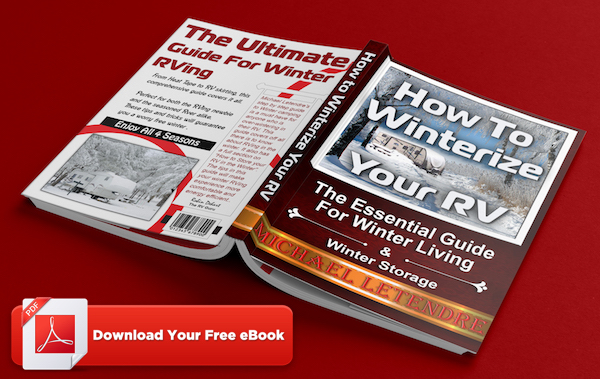In our fast-paced world, taking time to relax and recharge isn’t just a luxury, rather it’s essential for maintaining mental and physical health.
Traveling often comes with its fair share of excitement but sadly often a lot of stress as well. Navigating through airports, adapting to new environments, and maintaining a packed itinerary can quickly drain your energy.
It’s essential to incorporate relaxation and recharging techniques into your travel routine, as they can not only help you manage the inevitable stresses of travel but also enhance your overall well-being, ensuring that you return home feeling rejuvenated rather than exhausted.
Thankfully, there are a variety of effective strategies designed to help you relax and recharge during your travels, such as mindfulness and other relaxation techniques that can significantly reduce stress, improve concentration, and enhance overall well-being, allowing you to fully embrace your travels and create lasting memories.
Mindfulness and More: Techniques to Help You Relax and Recharge
Mindfulness Meditation
Mindfulness meditation is a powerful practice that involves paying close attention to the present moment, typically focusing on breath or body sensations, without judgment. By practicing mindfulness, you can decrease anxiety, enhance emotional resilience, improve mental clarity, and lower cortisol levels which is the body’s primary stress hormone.
One of the best aspects of practicing mindfulness is that it requires no special equipment or extensive training, making it an ideal tool for travellers seeking to reduce stress, enhance emotional regulation, and improve overall well-being.
By dedicating even a few minutes to this practice, whether it’s in an airport or in your hotel room, you may be able to experience profound shifts in your perception, leading to a more balanced, peaceful, and fulfilling trip.
Many travellers choose alternatives like vaping because it can provide a sense of quicker immediate relief from stress and anxiety due to nicotine’s ability to trigger the release of dopamine, a neurotransmitter associated with pleasure and relaxation, which can create a temporary sense of calm and satisfaction.
For those who use vaping devices like a RELX Pod, incorporating mindfulness into your routine can be an opportunity to pause and reflect on the reasons behind your habits, potentially leading to more mindful vaping and greater overall self-awareness.
Deep Breathing Exercises
Deep breathing is a simple yet effective technique to reduce stress and induce relaxation. Techniques like diaphragmatic breathing involve breathing deeply into the belly, promoting full oxygen exchange and slowing the heartbeat. This can quickly calm the mind and reduce tension in the body, making it a quick tool for travellers to experience stress relief anywhere and anytime.
Deep breathing activates the parasympathetic nervous system, which helps reduce the stress response, lowering heart rate and blood pressure. By bringing more oxygen to the brain, deep breathing can improve cognitive function, helping you stay alert and make better decisions which is crucial for travellers.
Because deep breathing increases oxygen supply to your body, it can also prevent fatigue associated with long flights and travel schedules.
Progressive Muscle Relaxation
Progressive muscle relaxation (PMR) is a technique where you tense each muscle group in the body tightly, but not to the point of strain, and then slowly relax them. This practice helps identify areas of tension and encourages a deeper state of physical relaxation.
PMR is particularly effective before bedtime to combat insomnia and can also be beneficial in managing symptoms of anxiety. It also comes in handy while traveling since long periods of sitting in planes, trains, or vehicles can lead to muscle stiffness and discomfort. PMR helps release tension in these muscles, providing relief and comfort.
PMR also encourages you to focus on different parts of your body, increasing your awareness and helping you stay present in the moment. Therefore, this goes well with mindfulness meditation.
Be sure to find a quiet and comfortable environment where you won’t be disturbed, even if it’s just a quiet corner at the airport or your hotel room. Try to practice PMR regularly, even if just for a few minutes each day. Consistency will enhance its effectiveness.
Guided Imagery
Guided imagery involves focusing your imagination on calm, peaceful images or scenes, often guided by a recording or a therapist. This form of mental escapism can significantly lower stress levels and is commonly used to foster relaxation and enhance mood.
It’s especially useful in situations where physical relaxation exercises aren’t feasible, such as in an office setting or when riding through heavy traffic in a taxi or on a bus. Guided imagery can help travellers reduce stress by allowing them to escape mentally from the pressures and anxieties of travel, such as dealing with airport delays, being stuck in long waiting lines at attractions or events, or when dealing with large tourist crowds.
Guided imagery encourages travellers to focus on positive thoughts and emotions, which can counteract negative thinking patterns and reduce worry. Engaging in guided imagery can boost mood and increase feelings of happiness and contentment, even during challenging travel situations.
Choose a calming and soothing mental image or scenario to focus on. This could be a beach, rainforest, spa, or any other scene that personally brings you comfort and relaxation. Use all your senses to immerse yourself in the visualisation. Imagine the sights, sounds, smells, textures, and even tastes associated with your chosen scene.
If you are having difficulty, consider using guided imagery audio recordings or apps that provide guided visualisation. Some apps are even designed specifically for travellers.
Yoga and Tai Chi
Combining physical movement with breathing exercises, yoga and tai chi are holistic practices that promote relaxation and well-being. These exercises not only help stretch and tone the body but also focus the mind and create a sense of calm.
By integrating simple yoga poses and Tai Chi movements into your travel routine, you can effectively relax, reduce stress, and enhance your overall well-being while on the go. Whether you prefer practicing in the privacy of your hotel room, in an uncrowded corner of an airport terminal or lounge, or in an outdoor park, there are plenty of opportunities to reap the benefits of these ancient practices during your travels.
Regular practice of both can lead to improved flexibility, balance, and overall physical health, as well as mental wellness. Learn a few simple yoga poses that you can easily practice anywhere, or simply download yoga apps or videos to your phone to guide you through short yoga sessions.
Learn a few basic Tai Chi movements that are easy to remember and perform, or once again download video tutorials to your phone. Many cities also offer group Tai Chi sessions in parks or community centers, providing an opportunity to practice with locals and other travelers.
Incorporate Tai Chi principles of slow, mindful movement into everyday activities such as walking or standing in line. Focus on your breath and body awareness to cultivate a sense of calm and relaxation.
Digital Detox
In the digital age, constant connectivity can be a major source of stress. Periodically unplugging from digital devices can help reduce anxiety, improve your mood, and enhance your interpersonal relationships.
Even short periods of digital detox can make a significant difference in your ability to concentrate and relax. Sometimes travellers find themselves in destinations that lack Wi-Fi which makes it easy to enjoy a digital detox since it’s forced, but other times you will need to force yourself to take a break from screentime.
Constantly checking emails, social media notifications, and messages can detract from your ability to fully engage with your surroundings. By disconnecting from digital devices, you can immerse yourself more deeply in the sights, sounds, and experiences of travel destinations.
Excessive use of digital devices also prevents many travellers from having meaningful face-to-face interactions with fellow travellers and locals. By putting away your phone and engaging with those around you, you can foster deeper connections and create lasting memories.
Setting the Stage for Tranquillity
As you incorporate these techniques into your daily routine, remember that the environment can also play a crucial role in your ability to relax. Create a calming space in your hotel where you can practice these techniques without interruption.
Consider elements like soft lighting, comfortable seating, and the removal of distractions to enhance your relaxation experience. Opt for accommodation that prioritises tranquillity, such as boutique hotels, bed and breakfasts, or vacation rentals in quieter neighbourhoods. Request a room away from noisy areas like elevators, stairwells, or busy streets to further minimise disruptions.
Think about packing items that help you relax, such as a comfortable travel pillow, lightweight blanket, noise-cancelling headphones, or an eye mask to block out light You may also consider packing essential oils or a travel-sized diffuser for creating a calming aroma in your room.
Embracing a Calmer Life

I hope these techniques will better equip you with ways to handle the stresses of travel more effectively. By taking time to incorporate some of these tips into your next travels, you will no doubt find your health may improve, your mind will be sharper, you’ll be well rested, and enjoy more peaceful holidays.
If You Liked This Post You May Also Like:
Source: Mindfulness and More: Techniques to Help You Relax and Recharge












